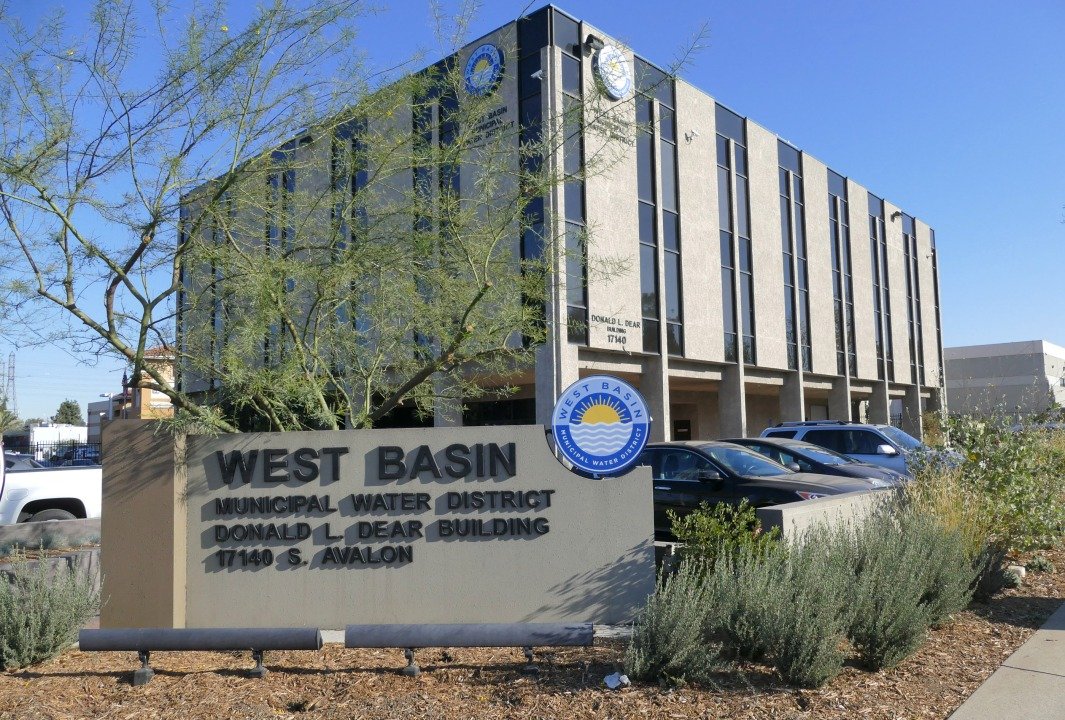Environmentalists Praise Decision to Terminate Ocean Water Desalination Project Off Santa Monica Bay
December 23, 2021West Basin Municipal Water District in El Segundo. Photo by Robert Casillas, Daily Breeze/SCNG
West Basin’s Decision a Big Win for Sustainable & Affordable Water Supplies in the LA Region
Los Angeles, CA (December 22, 2021) – West Basin Municipal Water District (West Basin) voted 3 to 2 in a special board meeting to terminate a proposed Ocean Water Desalination Project in favor of other local alternatives like wastewater recycling and groundwater. LA Waterkeeper was joined by its Smarter Water LA coalition partners and dozens of other environmental and community representatives in praising the agency’s decision to prioritize energy-efficient, cost-effective, and environmentally beneficial water supplies for our region.
The Board’s vote to terminate the Ocean Water Desalination Project represents a win for the environment and customers West Basin serves. LA Waterkeeper had challenged the approval of this project under the California Environmental Quality Act (CEQA) and our litigation remains active; however, we now hope that the Board’s termination of the project will allow us to resolve the litigation as expeditiously as possible.
Aerial view of El Segundo Beach.
Background
Decades ago, West Basin began investigating the development of an ocean water desalination project (the “Desal Project”). Since then, LA Waterkeeper and many other environmental groups have been working to stop this Desal Project from being constructed in favor of pursuing more energy-efficient, cost-effective, and environmentally beneficial water supplies for our region, such as conservation, recycled wastewater, stormwater capture and reuse, and groundwater remediation. Desal works by sucking in huge amounts of seawater through pipes in the ocean, passing it through filters to remove the salt, and finally pumping the remaining toxic brine back out into the ocean. This whole process is energy-intensive, climate-impacting, and an expensive way to get new water supplies, and the proposed Desal Project plan is no exception. In order to supply the 20 million gallons a day of drinking water promised by this project, it would need to suck in more than 40 million gallons a day of seawater, damaging many marine animals’ larvae. Moreover, the enormous amounts of energy required to run the plant will contribute approximately 40,000 tons of carbon into the atmosphere annually; and even compared to imported water (~$1,500 per acre-foot), desal is still far more expensive ($2,600-$4,600 per acre-foot) largely because of how energy-intensive such plants are.
In December 2019, LA Waterkeeper filed a lawsuit challenging the West Basin Municipal Water District’s flawed environmental review process under the California Environmental Quality Act. Along with numerous other shortcomings, West Basin’s EIR fails because it failed to analyze less harmful alternatives for obtaining the necessary water supply, failed to analyze the cumulative impacts of the project on energy use, climate, and marine ecosystems. It also did not contain a meaningful analysis of how the project would impact economically disadvantaged communities or the disproportionate burden they would bear.
The West Basin Board's vote to terminate the Ocean Water Desalination Project represents a win for the environment and customers. West Basin has served as a leader on recycling water, and this decision demonstrates their commitment to the environment and the financial well-being of local communities. This massive victory could make the Los Angeles region more water self-sufficient and position us as an international leader on integrated, sustainable, and equitable water management.
For additional quotes - click here.


